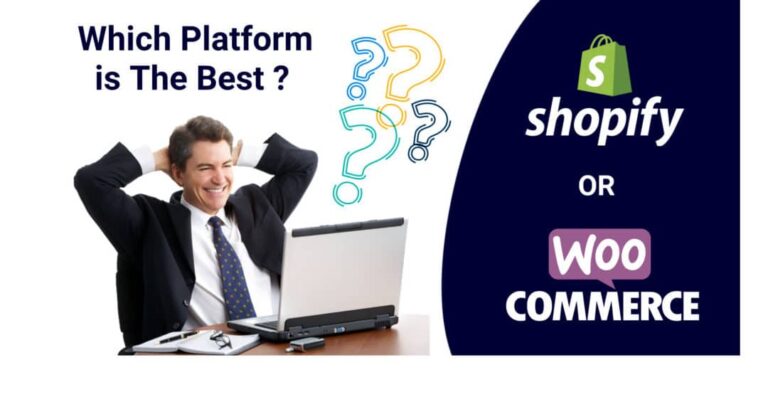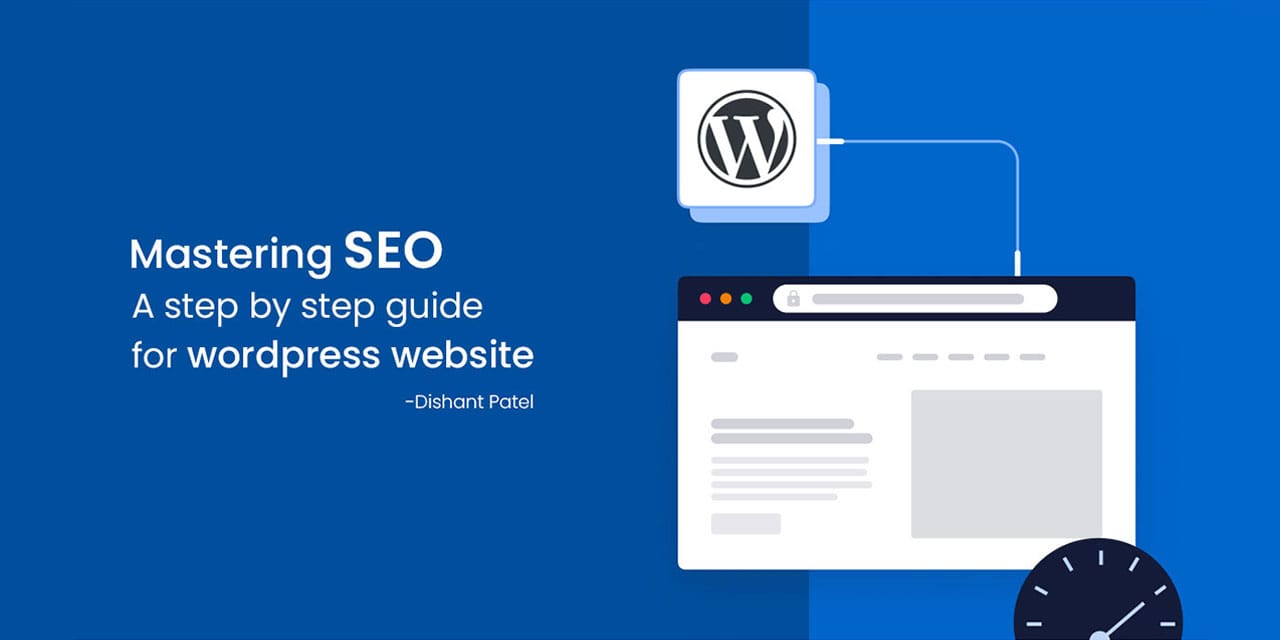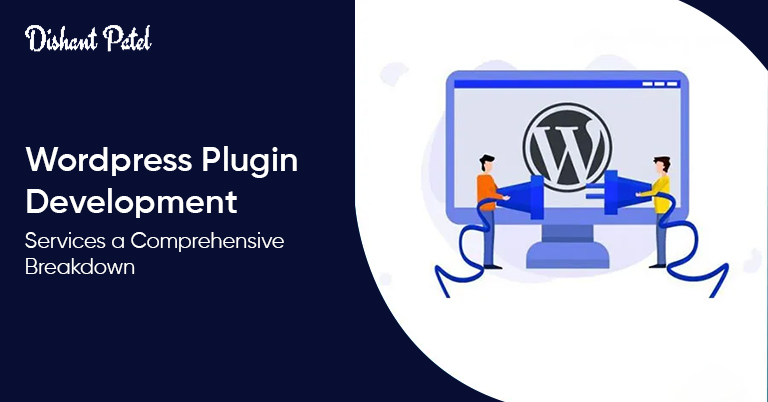In the rapidly evolving landscape of e-commerce, choosing the right platform for your online store is crucial for success. As of 2024, WooCommerce and Shopify stand out as two of the most popular and robust options. In this comprehensive comparison, we’ll delve into various aspects of both platforms, shedding light on their features, flexibility, pricing, and more. Let’s navigate through the nuances to determine which platform holds the crown in the ongoing battle of WooCommerce vs Shopify.
Understanding WooCommerce
- Introduction to WooCommerce
WooCommerce, a WordPress plugin, empowers users to transform their WordPress sites into fully functional e-commerce stores. This open-source platform boasts a vast array of customizable features, making it a preferred choice for businesses of all sizes.
- Flexibility and Customization
One of WooCommerce’s standout features is its unparalleled flexibility. Users have the freedom to tailor their online stores to meet specific needs, making it an ideal choice for businesses with unique requirements. Whether it’s tweaking the design, integrating specialized functionalities, or scaling up as your business grows, WooCommerce adapts effortlessly.
- Integration with WordPress
Given its affiliation with WordPress, WooCommerce seamlessly integrates with a variety of plugins and themes, offering an extensive range of design and functionality options. The synergy between WooCommerce and WordPress provides users with a content management system that’s not only e-commerce-friendly but also excellent for blogging and SEO purposes.
- Cost Considerations
WooCommerce is an open-source platform, making it cost-effective for small businesses. However, it’s essential to factor in potential expenses for hosting, themes, and extensions. While the base plugin is free, additional features and enhancements may require some investment.
- SEO-Friendly Nature
WooCommerce excels in search engine optimization (SEO). Its structure, combined with the power of WordPress, provides a solid foundation for optimizing content and improving search rankings. The ability to customize meta tags, URLs, and other SEO elements gives businesses a competitive edge in the online marketplace.
- Shopify Overview
Shopify, a standalone e-commerce platform, is renowned for its user-friendly interface and comprehensive set of features. Let’s explore the aspects that set Shopify apart in the ever-growing world of online retail.
- User-Friendly Interface
Shopify prides itself on simplicity, making it an excellent choice for beginners. The platform offers an intuitive dashboard, enabling users to manage their stores with ease. From product listings to order fulfillment, Shopify simplifies the e-commerce process, allowing entrepreneurs to focus on growing their business rather than grappling with technical complexities.
- All-Inclusive Hosting
One of Shopify’s key advantages is its all-inclusive hosting service. Users don’t need to worry about separate hosting arrangements, streamlining the setup process. This is particularly advantageous for those who want a hassle-free experience and don’t want to deal with the intricacies of hosting providers.
- App Store and Integrations
The Shopify App Store provides a plethora of third-party applications, enhancing the platform’s functionality. These will help you accommodate visitors with disabilities, enhance SEO, and bolster user information security.
This extensive ecosystem enables users to add features and tools seamlessly. From marketing and analytics to inventory management and customer support, Shopify’s App Store allows businesses to customize their store’s capabilities according to their evolving needs.
- Pricing Structure
Shopify’s pricing model includes a monthly fee, covering hosting and support. While this simplifies budgeting, it’s crucial to assess the overall cost and compare it to the features offered. Shopify’s plans vary, catering to different business sizes, but businesses should carefully evaluate their requirements and budget constraints to ensure they choose the most cost-effective plan.
Understanding Shopify:
1. E-commerce Platform:
- Shopify is a popular e-commerce platform that enables businesses to create and manage online stores.
- It provides a user-friendly interface, making it accessible for both beginners and experienced entrepreneurs.
2. Features and Customization:
- Shopify offers a wide range of features, including product management, order processing, payment gateways, and customizable themes.
- Users can customize their online stores using various themes and apps available on the Shopify App Store.
3. Payment Gateways:
- The platform supports multiple payment gateways, allowing businesses to accept payments through various methods like credit cards, PayPal, and more.
- Shopify Payments is an integrated payment solution for seamless transactions.
4. Hosting and Security:
- Shopify is a hosted solution, meaning it takes care of web hosting, security, and server maintenance.
- The platform complies with industry standards for security, providing a secure environment for online transactions.
5. Responsive Design:
- Shopify themes are designed to be responsive, ensuring a consistent and optimized shopping experience across different devices such as desktops, tablets, and mobile phones.
6. App Ecosystem:
- Shopify has a vast ecosystem of third-party apps that can be integrated into the platform to enhance functionality.
- Apps cover a wide range of areas, including marketing, analytics, inventory management, and customer support.
7. SEO-Friendly:
- Shopify is built with SEO best practices in mind, helping businesses optimize their online stores for search engines.
- Users can customize meta tags, URLs, and other SEO elements to improve visibility in search results.
8. Analytics and Reporting:
- Shopify provides built-in analytics tools that allow merchants to track sales, customer behavior, and other crucial metrics.
- Users can generate reports to gain insights into their store’s performance.
9. Scalability:
- Shopify caters to businesses of all sizes, from small startups to large enterprises.
- The platform’s scalability allows businesses to grow their online presence without worrying about technical constraints.
10. Customer Support:
- Shopify offers customer support through various channels, including live chat, email, and phone support.
- The platform also provides extensive documentation and a community forum for users to find answers to common questions.
Deciding Factors: Making an Informed Choice
As we weigh the merits of WooCommerce and Shopify, it’s essential to consider your business’s specific needs and goals. If you prioritize flexibility, customization, and cost-effectiveness, WooCommerce may be the superior choice. On the other hand, if ease of use, a user-friendly interface, and comprehensive support are your priorities, Shopify could be the better fit.
In conclusion, both WooCommerce and Shopify have their strengths, and the optimal choice depends on individual preferences and requirements. As you embark on your e-commerce journey in 2024, carefully evaluate the unique features each platform offers and align them with your business objectives. By doing so, you’ll make an informed decision that propels your online store to new heights.
Embracing the Future of E-Commerce
The world of e-commerce is dynamic, and as technology advances, new opportunities and challenges will emerge. Regardless of whether you choose WooCommerce or Shopify, staying abreast of industry trends and continually adapting your online store will be key to sustained success. As we navigate through the digital landscape of 2024 and beyond, remember that the superiority of a platform lies not just in its features but in how well it aligns with your business vision and customer expectations. May your e-commerce venture flourish in the years to come!




